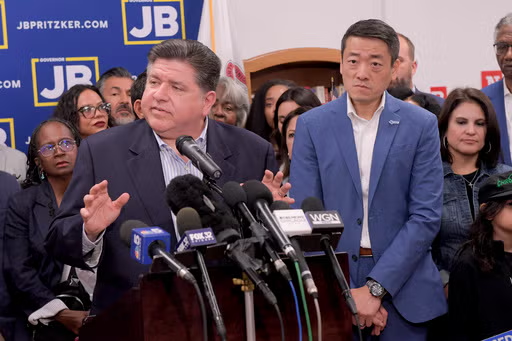Texas House Moves to Allow Civil Arrest Warrants for Democrats Who Fled State
The political standoff in Texas intensified Monday as Texas House Speaker Dade Phelan announced he had signed civil arrest warrants for Democratic lawmakers who failed to appear for a special legislative session.
Why the Democrats Left
On Sunday, a group of State House Democrats fled Texas in an effort to block a controversial redistricting proposal pushed by the Republican majority. The plan, backed by former President Donald Trump, seeks to redraw the state’s congressional map in a way that analysts say could eliminate up to five Democratic U.S. House seats ahead of the 2026 midterm elections.
The Democrats’ departure denied the chamber the quorum needed to conduct business, effectively freezing legislative proceedings.
Civil Arrest Warrants — But Are They Enforceable?
In response, Phelan authorized civil arrest warrants for the absent Democrats. Legal experts note that such warrants are unlikely to be enforceable outside Texas state lines, meaning that any lawmaker who remains out of state may avoid being compelled to return.
The move follows earlier threats from Republican Gov. Greg Abbott, who warned he could seek to remove and replace lawmakers who refuse to participate. Abbott likened their absence to an “abandonment or forfeiture of an elected state office.”
What’s Next
The Texas House will reconvene Tuesday after failing to reach quorum on Monday. Under Texas law, a special legislative session can last for only 30 days. The current session will end on August 19, meaning Republicans face a narrowing window to pass the redistricting plan.
For now, the absent Democrats remain outside the Capitol — and in some cases, outside Texas entirely — continuing a tactic first employed in previous standoffs over voting laws and redistricting. Whether the civil arrest warrants will bring them back before the session expires remains uncertain.
Texas House Moves to Allow Civil Arrest Warrants for Democrats Who Fled State in Redistricting Standoff
The partisan showdown in Texas escalated Monday when Texas House Speaker Dade Phelan signed civil arrest warrants targeting Democratic lawmakers who failed to appear for a special legislative session. The move marks the latest twist in an increasingly bitter dispute over redistricting and political power in the Lone Star State.
A Coordinated Democratic Walkout
The absent lawmakers — members of the Texas House Democratic Caucus — left the state Sunday in a coordinated effort to block a controversial Republican-led redistricting plan. By fleeing, they denied the chamber the two-thirds quorum required to conduct legislative business, effectively stalling the GOP’s agenda.
The walkout comes as Republicans, buoyed by narrow control in Congress and the backing of former President Donald Trump, push a map that analysts warn could eliminate as many as five Democratic-held U.S. House seats. Such a shift would give Republicans a stronger foothold in Texas’s congressional delegation heading into the 2026 midterms.
Civil Arrest Warrants and Their Limits
Phelan’s decision to authorize civil arrest warrants is intended to force the Democrats back to the Capitol. Under Texas law, absent lawmakers can be compelled to return if they are found within the state. However, constitutional scholars say the warrants are largely symbolic beyond state lines and cannot compel lawmakers to return from out-of-state safe havens.
Still, the warrants send a clear political message — one echoed by Governor Greg Abbott, who has threatened more drastic action, including the potential removal and replacement of lawmakers who persist in their boycott. Abbott compared their absence to an “abandonment or forfeiture of an elected state office.”
A Tactic with History
The maneuver is not without precedent. Texas Democrats have used walkouts before — most notably in 2021, when they fled to Washington, D.C., to block GOP-backed voting restrictions. Similarly, in 2003, Democratic legislators decamped to Oklahoma in an attempt to thwart a Republican redistricting plan.
In both cases, the tactic delayed but did not ultimately prevent Republican majorities from passing their preferred legislation.
What Happens Next
The Texas House is scheduled to reconvene Tuesday, but without a quorum, the legislative process will remain frozen. Special legislative sessions in Texas are capped at 30 days, and the current one ends August 19. That deadline gives Republicans just over two weeks to find a way to bring Democrats back or risk seeing their redistricting plan die on the floor.
For now, Democratic lawmakers show no signs of returning. Many are reportedly outside the state, continuing to rally public opinion against the proposed congressional map and painting their walkout as a last line of defense against what they call an erosion of fair representation.
The question remains: Will civil arrest warrants be enough to break the stalemate, or will history repeat itself with another dramatic Texas political standoff that ends only when the clock runs out?
![]()
Share this content:
